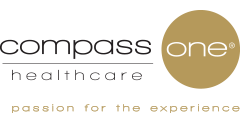
Staff recruitment is one of the largest challenges in healthcare today. A 2017 study for Prudential found 90% of hospital leaders worried about a shortage of physicians, nurses, and health specialists impacting their ability to deliver quality patient care over the next 10 years. The COVID-19 pandemic made things even more dire, with around 20% to 30% of frontline health workers thinking about leaving the sector. As the health industry focuses on delivering the high-quality care patients deserve, strategies for recruiting the best clinical and non-clinical employees are in the spotlight.
Harness Recruitment Analytics
Analytics technology helps to find meaningful patterns in large amounts of data. Now, employers are harnessing this technology to help them improve their recruitment efforts. Recruitment analytics helps companies learn more about their recruitment efforts, including what works and what doesn't. By analyzing recruitment data, health facilities can learn how much it costs to fill their vacancies, how diverse their hiring practices are, whether their recruitment efforts yield high-quality candidates, and much more. The more healthcare companies know about their recruitment practices, the more power they have to improve them.
Use Artificial Intelligence (AI) To Find the Best Candidates Quickly
Many people associate AI with science fiction, but this smart technology already helps hospitals run better. At Compass One, we've leveraged AI to quickly screen resumes and locate candidates with desirable experience and skills in mere seconds. Data signals can flag candidates who are likely to fit with a facility's corporate culture. AI also doesn't have the inherent biases of human resources professionals, so they can objectively assess candidates. With AI onboard, healthcare facilities can optimize their efforts and start interviewing the best people sooner.
Think Beyond Skills and Assess Character
Traditional interviews are best at showcasing applicants' technical skills. While these skills matter, employers shouldn't overlook soft skills. Showing empathy, being adaptable, and collaborating with a team are just some of the vital soft skills that help health workers get along with patients and staff. Adding behavioral assessments to the recruitment process can help facilities identify candidates with these and other soft skills.
Promote Current Team Members to Management Roles
Sometimes the answer to recruitment issues is close to home. Many healthcare facilities look for experienced managers outside their organization, but some of the best hires come from within. Existing employees already understand the corporate culture, patient care standards, and facility goals. As they are often grateful for advancement opportunities, they tend to be loyal and productive managers. Employees who see their peers promoted also feel motivated to work hard for the same opportunities.
Staff shortages and high turnover rates are key challenges in healthcare, but there are strategies that can help facilities rise to this challenge. Smart strategies and technological tools help healthcare facilities meet recruitment challenges head-on and find the right people for their clinical and non-clinical roles.


